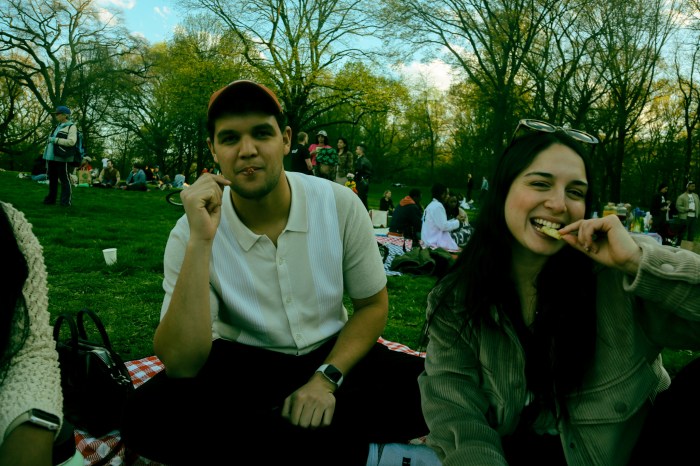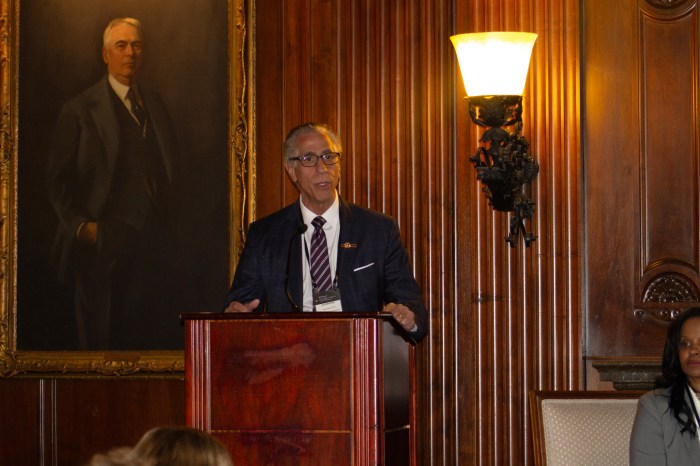BY ERASMO GUERRA | In early January of this year, Helen, 68, a US citizen, and Mikiko, 59, who came to New York from Japan, companions for more than 20 years, packed up their favorite kitchen utensils and made the move from Manhattan to Toronto.
For now, they're living in a two-bedroom furnished apartment on a month-to-month basis, in a tree-filled residential neighborhood of one-family homes, not far from High Park, the showpiece of Toronto's park system.
But they're still figuring out where in the city they'd like to make a more permanent home.
Longtime bi-national lesbian couple find refuge in Toronto.
Over the course of their long relationship, the two women have tried to settle in the United States, Guatemala, Mexico, and Japan. But due to current immigration policies in each of those countries, they have never been allowed permanent residence together and have been on the move for as long as they've been in love.
As a same-sex, bi-national couple, Helen and Mikiko (their names have been changed at their request), didn't have a country they could officially call home. In the US, the laws of family-based immigration only allow heterosexual couples to sponsor one another for permanent residency.
The Uniting American Families Act, immigration legislation sponsored by West Side Democratic Congressman Jerrold Nadler, may change that, but, like other contentious questions related to who can stay in the US and who must go, movement is at least one election away.
For the time-being, US policy excludes same-sex couples, no matter how long they've been together.
“Twenty-one years and as far as immigration is concerned,” said Helen, “there's no recognized relationship between us.”
The two women met in New York in the mid-'80s, introduced by a friend who knew they made a perfect match, at least for exchanging English/Japanese conversation lessons.
As if love weren't tough enough, Helen said it's harder if you fall in love with someone from another country. “For straight people, there's just the hurdle of whether you want to marry or not,” she noted.
Determined to stay together, the two applied for student and tourist visas and, when those expired, one or the other of them took the risk of living as an “undocumented.” Even at that, the couple has been forced to divide their time between countries and endured months-long separations.
“You can't maintain a relationship under those conditions,” Helen said.
Through all the years of obstacles and discouragement, the two women have been beset with a bewildering array of questions:
“Is it worth staying together?
“Do we want to hassle with immigration?
“Do we want to relocate?”
“And so far the answer has always been yes,” Helen said of their commitment to each other.
The latest effort to stay together began when Helen applied for a Canadian working visa.
According to Rachel B. Tiven, executive director of the New York-based advocacy group Immigration Equality, it's not hard to see why same-sex couples from New York might move to Canada once they run out of options.
“It's close. It's easy,” Tiven emphasized. “It's open to couples that aren't citizens of the country so long as one person qualifies based on their immigration point system.”
With Helen's Ph.D. and years of work experience in the computer industry, her application was nearly guaranteed acceptance, and through her work visa she could then cover Mikiko, her partner.
Not that the process was easy or quick, even in Canada, one of a handful of nations that recognizes the right of gay and lesbian couples to marry.
“It's still expensive and an investment of time and patience,” Helen said.
For their application, which they started in the fall of 2005, the two women listed the addresses where they've lived together over the years. They dug up pictures of themselves at parties and other people's weddings. They provided statements from their joint bank accounts. To make herself an even more attractive applicant, Helen took a refresher course in French, and passed a language-proficiency exam.
In July 2007, nearly two years after they started the process, their application was officially accepted and they made their move north in early January.
Tiven points out that second- and third-country options such as the one Helen and Mikiko were able to grab are limited; for the most part, they're only available to couples who have the financial resources, professional qualifications, and resulting socio-economic mobility to make themselves attractive immigrants for other countries.
“For couples with less options there may be no place in the world where they can make a family together,” Immigration Equality's Tiven said.
Mikiko finds Canada welcoming. The government provides English-language programs and work counseling. Her initial impression of Toronto is that it is “gentler” than New York, smaller and more relaxed than Tokyo. But she misses the friends and family she left in Japan, not to mention the food, especially the little Tokyo bars and snack places. She has yet to find anything like that in Toronto.
Helen misses New York Hallah bread.
“I had to get on the Internet to see, 'Okay, where do they sell Jewish bread in Toronto?'” she said.
The weather also takes getting used to. Mikiko said she's never seen so much snow.
“You get snow flurries three or four times a day,” Helen admitted, but she insists that for a New Yorker like herself “it's not so bad.”
Still, the couple outfit their shoes with “Yak-Trax,” or what Mikiko jokingly refers to as winter chains for her feet.
Helen worries whether Mikiko will be able to make a life as satisfying as the one she knew in Tokyo.
“It's hard to tell a joke in a foreign country,” she pointed out.
While starting over might prove frustrating, Helen said, “It offers the hope of being settled. In the 21 years we've been together, we've never had that. We've never been able to think about being permanent. That's worth working toward.”
The women said they probably won't take advantage of the right to get married in Canada.
“We don't have a sentimental attachment to marriage,” Helen said, though she added that if it would've helped their immigration petition, they would've definitely tied the knot.
But in Canada it's enough to be in love for as long as they have been.
These years of struggle have only strengthened their relationship.
“We have a shared history,” said Helen. “We've kept our vow to one another.”


































